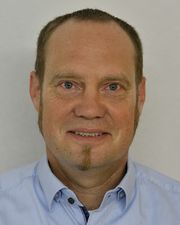Dr. Michael Käser, PhD
Function(s)
Head of Project and Grant Unit
Organisational Entity
- Swiss TPH
- Directorate
- Project and Grant Unit
Profile
Professional activities at Swiss TPH
Michael Käser is a cell biologist and senior scientist in molecular genetics of infection biology, with a focus on research and teaching in low- and middle income countries of sub-Saharan Africa. He has been working at various higher education institutions, including the University of Ghana, where he set up an international and interdisciplinary PhD program. Since 2013, Käser heads the Project & Grant Unit at Swiss TPH for which he has built up academic management and governance structures with global health organisations. Through the unit’s activities, the team strategically and technically supports large-scale and collaborative research grant applications to support the institute’s project portfolio. The unit has established research grant management, allowing Swiss TPH to exert the consortium lead for collaborative, multicentre (among others) EU projects. Käser teaches on immunology and research management, co-supervises master and PhD students at the University of Basel, and carries out research capacity building in North-South initiatives.
Selected Publications
All PublicationsMy Publications
Käser M, Maure C, Halpaap B.M, Vahedi M, Yamaka S, Launois P, Casamitjana N. Research capacity strengthening in low and middle income countries - an evaluation of the WHO/TDR career development fellowship programme. PLoS Negl Trop Dis. 2016;10(5):e0004631. DOI: 10.1371/journal.pntd.0004631
Sankoh O, de Savigny D, Long K.Z, Käser M, Karim A, Mäusezahl D, Tanner M. CHESS: an innovative concept for a new generation of population surveillance. Lancet Glob Health. 2015;3(12):e742. DOI: 10.1016/S2214-109X(15)00180-1
Teuscher T, Käser M, Agarwal K, Maguire M. Improving livelihoods beyond 2015: linking malaria control with sustainable development. Global Health and Diplomacy. 2012:12-14
Käser M, Hauser J, Pluschke G. Single nucleotide polymorphisms on the road to strain differentiation in Mycobacterium ulcerans. J Clin Microbiol. 2009;47(11):3647-3652. DOI: 10.1128/JCM.00761-09
Käser M, Hauser J, Small P, Pluschke G. Large sequence polymorphisms unveil the phylogenetic relationship of environmental and pathogenic mycobacteria related to Mycobacterium ulcerans. Appl Environ Microbiol. 2009;75(17):5667-5675. DOI: 10.1128/AEM.00446-09
Käser M, Ruf M.T, Hauser J, Marsollier L, Pluschke G. Optimized method for preparation of DNA from pathogenic and environmental mycobacteria. Appl Environ Microbiol. 2009;75(2):414-418
Huber C.A, Ruf M.T, Pluschke G, Käser M. Independent loss of immunogenic proteins in Mycobacterium ulcerans suggests immune evasion. Clin Vaccine Immunol. 2008;15(4):598-606. DOI: 10.1128/CVI.00472-07
Hilty M, Käser M, Zinsstag J, Stinear T, Pluschke G. Analysis of the Mycobacterium ulcerans genome sequence reveals new loci for variable number tandem repeats (VNTR) typing. Microbiology. 2007;153(Pt 5):1483-1487
Käser M, Rondini S, Naegeli M, Stinear T, Portaels F, Certa U, Pluschke G. Evolution of two distinct phylogenetic lineages of the emerging human pathogen Mycobacterium ulcerans. BMC Evol Biol. 2007;7:177
Käser M, Kambacheld M, Kisters-Woike B, Langer T. Oma1, a novel membrane-bound metallopeptidase in mitochondria with activities overlapping with the m-AAA protease. J Biol Chem. 2003;278(47):46414-46423
Käser M, Langer T. Protein degradation in mitochondria. Semin Cell Dev Biol. 2000;11(3):181-190. DOI: 10.1006/scdb.2000.0166
